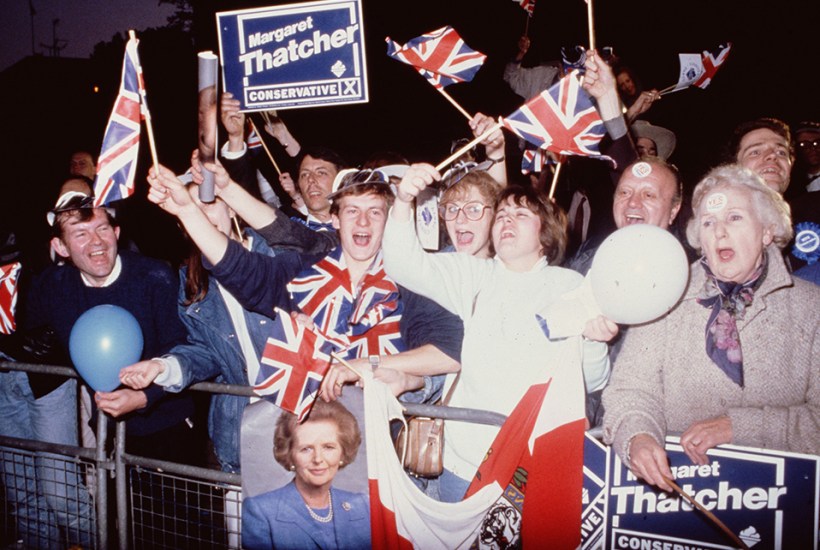No other country, wrote Karl Marx in 1854, was so ripe for revolution as Britain. How wrong can you be? Despite two world wars, innumerable booms and busts, not to mention the extension of the franchise to the lower orders, 170-odd years later Britain’s ruling class are (or were until recently) almost as firmly in the saddle as they have ever been. Their influence, not to say control, over the commanding heights remains almost as absolute as ever.
The facts are stark. Not for nothing is the Conservative party widely regarded as the most formidable electoral machine in Europe. It has been in power for roughly two thirds of its 200-year history. Of its 19 leaders, only four have failed to win at least one election (and three of those were up against Tony Blair). In contrast, only four of Labour’s 19 leaders have ever won an election. Recent Tory prime ministers have included two Etonians and a Wykehamist. Marx would be astounded. Samuel Earle writes:
At the very least one might expect that the Conservatives’ ascendancy would be the subject of endless debate and dissection… But the success of the Conservatives is remarkable not only for its longevity but also for the strange incuriousness that accompanies it… What does it say about the party, and what does it say about us?
These are questions he seeks to address.
One of the Tories’ greatest historical achievements, he says, has been to secure the consistent support of at least one third of working-class voters and – in the recent election – almost half. The winning formula, he argues, has been to present themselves as the party of patriotism and economic competence, combined with a fair degree of pragmatism and a ruthless appeal to base instincts on issues such as immigration, the Bomb and, above all, Brexit.
Personally, I don’t find the Tories’ long hegemony so surprising, given the huge imbalance of resources between them and other parties and a written media, much of which, as the late Ian Gilmour remarked, could not be more servile were it state controlled. Plus, of course, there has been an element of luck. The Thatcher revolution would not have been possible without the proceeds of North Sea oil. The wonder is that Labour has triumphed as often as it has, given what Harold Wilson used to refer to as its ‘penny-farthing machine’.
Tory Nation explores, more or less dispassionately, the remarkable resilience of the Conservative party, which ought to be of interest to friend and foe alike. Earle, a young freelance writer, sketches the origins of Tory philosophy from Peel to Hayek and Thatcher. There are scrupulously footnoted sections on the threads that help explain why Britain is in so many respects a naturally conservative country – monarchy, imperial nostalgia, public schools, the House of Lords. Much of this is territory first explored in Anthony Sampson’s Anatomy of Britain and more recently by Simon Kuper in Chums.
There are omissions. More attention might have been paid to the damaging impact of Labour’s penchant for civil wars, which in the 1950s, the 1980s and more recently helped to keep the party out of office. The Tories, by contrast, have (at least until the coming of Brexit) been relatively disciplined. And, of course, they have never hesitated to steal the opposition’s clothes when it suited them. In their playbook, winning at almost any price has always trumped ideology.
Nor can the long Conservative dominance be explained by the undoubted fact that the dice are heavily loaded. The Tories are also beneficiaries of majority affluence, a phenomenon first identified many years ago by J.K. Galbraith. It is no longer possible, if it ever was, to win elections by simply mobilising the poor and the disaffected (many of whom don’t vote anyway). To stand a chance of winning in a modern democracy an opposition party has to take with it a fair swathe of the prosperous. It is no coincidence that the only leader to beat the Tories at their own game in recent years was Blair, himself the product of an elite education. He did so by neutralising Rupert Murdoch and placing Labour firmly in the centre ground – and keeping it there kicking and squealing through two elections.
This was brought home to me when, at the turn of the century, I was invited to address the sixth form at Harrow. Afterwards, I had tea with half a dozen masters and was astonished to find that none of them had voted Conservative in 1997.
‘We think you’ll win by even more next time,’ said one.
‘What on earth makes you think that?’
‘Because we talk to the parents, and they are no longer afraid of you.’
Got something to add? Join the discussion and comment below.
Get 10 issues for just $10
Subscribe to The Spectator Australia today for the next 10 magazine issues, plus full online access, for just $10.
You might disagree with half of it, but you’ll enjoy reading all of it. Try your first month for free, then just $2 a week for the remainder of your first year.








Comments
Don't miss out
Join the conversation with other Spectator Australia readers. Subscribe to leave a comment.
SUBSCRIBEAlready a subscriber? Log in